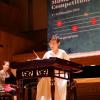Leaderboard
Popular Content
Showing content with the highest reputation on 03/23/2012 in all areas
-
This is the site where you realize how bad you are, you first get upset, then kinda understand, then learn to improve, then you get right the opposite of comments you used to get, then you're too good to remain here and leave... how much time does this takes ? depends on you.3 points
-
People usually reap what they sow. Go on bragging about our own works, and some people will happily riddle them on bulletholes, regardless of its quality or lack of (but if it's indeed lacking, even worse). But also, go on pulling a Wagner-on-Brahms, Hanslick-on-Tchaikovsky, Cui-on-Rachmaninov or everyone-on-Schoenberg kind of verbal abuse, and no one will take our advice seriously anymore. It's not like the world should kneel and thank us for even bothering to share our unsurpassable wisdom :P. Honesty doesn't equal rudeness. Lacking humility will block our chances of learning anything. Lacking courtesy doesn't make us look any better. Both behaviors show exactly the same character flaw - the oversensitive, whale-sized egos so common among us musicians ;)... The bottom line: listen and take note of what can be corrected - and let our music do the talking.2 points
-
Luderart, 'standing up' for your own music works for you so long as your music has no basic theoretical mistakes such as those in voice-leading and harmony, etc. Do you know that you were really bold to call your piece a 'great' song? :o Despite the obvious mistakes? Well it may be fine since you were ignorant about it, but after advices given from the previous posts, shouldn't you thank each of them since they helped you to spot your errors? As a composer, we must learn humility. Some people may give harsh criticisms, that's okay, because they are constructive and will give you a mini wake-up call. You should be appreciative of them and learn how to make use of these feedback to the benefit of your development as a composer. I understand that you will naturally take pride in whatever music you create (I do, too! :P Who doesn't?), but not all of the things we do are perfect and there is always room for improvements. This has already turned into an argumentative combat, and you need to be more receptive. =] :) All the best! With more practices and theoretical understanding, I believe you'll compose even better music in the future! By the way, I've found a nice Ute prayer to summarise things up. Earth, Teach Me "Earth teach me quiet ~ as the grasses are still with new light. Earth teach me suffering ~ as old stones suffer with memory. Earth teach me humility ~ as blossoms are humble with beginning. Earth teach me caring ~ as mothers nurture their young. Earth teach me courage ~ as the tree that stands alone. Earth teach me limitation ~ as the ant that crawls on the ground. Earth teach me freedom ~ as the eagle that soars in the sky. Earth teach me acceptance ~ as the leaves that die each fall. Earth teach me renewal ~ as the seed that rises in the spring. Earth teach me to forget myself ~ as melted snow forgets its life. Earth teach me to remember kindness ~ as dry fields weep with rain." Key words: "quiet", "suffering", "humility", "caring", "limitation", "acceptance", "renewal", "forget myself" and "remember kindness". Remember all these and you'll be an awesome composer ^.^2 points
-
In the past, at least, several composers were what we call self-taught. I'd like to think the same could be done today. But don't mistake that for meaning you can be lazy about it and achieve great results. It's always in your interest to read and learn as much as you can. Probably one of the big benefits to studying with someone or at a school is the contacts you'd make, i.e., people who will actually perform your music. Plus, you'd be in a music-loving environment and ideas would be passed around to which you might not otherwise be exposed.2 points
-
2 points
-
As for what I am working on - well had a reading of my violin duos I wrote a few months ago and accordingly made some excellent revisions. Recording will happen this week. Still working slowly on my piano quintet. Hopefully I will have the first movement complete by early April. Yet I am excited because I never wrote a movement which lasted over 8 minutes - it is up to 9.5 and I forsee it being between 12 - 14 minutes. I noticed that for piano quintets it is not unusual for the first movement or more than one mvmt to exceed 8 minutes. I think there is something about the rich textures possible with piano and string quartet which lend it to longer durations of music.1 point
-
No, but it would make it easier. A lot of the stuff taught in formal training is now available to anyone online and in books (which can be purchased online and sometimes read there to). Formal education makes it easier and you have more guidance, but one can still be completely self-taught and be a very good composer.1 point
-
Says the guy who lists Holst as one of his favourite composers. Anyway.... You're missing a few others: Wagner Schoenberg J.S. Bach Balakirev, Cui, Rimsky-Korsakov, Borodin, and Mussorgsky (the last three certainly can lay claim to being geniuses of some sort) Elgar Telemann Martinu Raff Sorabji probably a few more Now it's probably more accurate to say that any of the people mentioned were largely self-taught, because at some point most had some kind of instruction. I seem to remember you being fond of Yanni. He's also self-taught. (Mind you, he is not what I think of when I think of the word "composer.")1 point
-
Yup. My (weirder) music is attacked all the time. If you back down every time that happens, you will have zero respect instead of just a little respect. *cue song*1 point
-
The only composer that made it big that I can think of that was essentially self-taught was Berlioz. And that's not entirely accurate since he did go to the Paris Conservatorie at one point. And most of his stuff sucks anyway.1 point
-
There's something called constructive criticism. Apparently you've never heard of it. There's little point to sticking your head in the door and saying "I looked at your piece, it sucks" and then running away.1 point
-
I don't really expect to make a lot of money from music (there's almost zero chance of getting it in my country). But if that was randomly to happen, I wouldn't complain.1 point
-
I'm sorry to be harsh, but you need to realize that there are some fundamental problems with your piece, because if you don't, you won't be getting anything else performed in the future either. I'm not one of the "pros" here, but I know there is a lot that is wrong with it: -it's way too jumpy. Middle voices in particular jump around less than the outer voices, so what you are writing is not idiomatic. I wouldn't call that original, I'd call it not knowing how to write. -your harmonies are incredibly basic. Most of the time, you have two notes spread between four voices. That isn't even triadic harmony (though it's implied). What's the point in writing for four voices if this is the case? -your spacing is really bad. You don't want to have more than an octave between any of the upper three voices at any time (i.e., between the tenor and alto, and alto and soprano. You can obviously have more than an octave between the tenor and soprano). You can have more than an octave between the bass and tenor. Generally, you don't want the bass and tenor too close because it tends to sound muddy (especially thirds). Fourths and fifths are good intervals to have between B and T simply because of the acoustical properties of sound. (This also applies in instrumental music.) -you cross voices, e.g., 1st bar, 2nd to 3rd beat. I'm not going to point out where else you do it. This has the effect of making it sound like one of the voices has disappeared. -homophony can be used effectively for certain passages, but I don't think it's a good idea to write an entire piece in a homophonic style. It's boring. -traditionally, singers have hated augmented seconds. Maybe that's less of a case now, but for your purposes, I'd avoid it. In short, you need to get a book on four-part harmony. Barring that, study some Bach chorales. But you really need to learn some basic rules first. I've mentioned a few.1 point
-
1 point
-
Also, your lines are quite awkward for some of the ranges, esp. the tenor. And parallels all over the place is just lazy composition. This is bad. Start over please.1 point
-
Perhaps, instead of petty jabs over generalizations and speculation, you could show us this song. We then might have more objective and constructive feedback as to why your song was not welcomed by your conductor.1 point
-
Thanks jr, I just did what it had to do :-). Great! Thanks a lot.1 point
-
Welcome to the newly re-opened Lessons Department - offering one-on-one virtual lessons with our faculty of skilled and knowledgeable teachers. Help this section grow by signing up today!! The lesson-plan/curriculum is to be determined and decided on a case-by-case basis between student and teacher. The appeal of this method is that it allows the most freedom for both parties to customize the appraoch and to tailor each series of lessons to the particular topic and to the people involved. Please understand that at this point, teachers are generiously volunteering their time to help; try and be courteous and respectful of this generosity. To sign up: - Pick the subject you want to learn and with whom you'd like to study. - Send a message to SYS65 indicating your subject and teacher preferences. - Daniel (SYS65) and/or your new teacher will respond with a decision on your placement. Current teachers: (Currently Updating this list) SYS65 (Daniel Muñoz Alférez) 20th Century Orchestration. (Intermediate to Advanced) Using Sibelius. (Starters to Advanced) Electronic Music with FL Studio. (Starters to Advanced) ---------------------------------------------- Siwi (Simon Wilkins) Composing for stringed instruments General Music Composition Chamber ensembles Orchestration Development and elaboration of ideas Using Sibelius Choral Writing ---------------------------------------------- Aniolel (Aaron Saylor) Music Theory: (Starters to Advance) Harmonics covered here from diatonic triads to 20th century harmony, and beyond. Counter point: up to 4 part writing. Composition/ Development: (starters to advance) Thematic writing and development Harmonizing of themes Different types of basic forms Textures Sonata writing: All three forms (Intermediate to advance) ---------------------------------------------- Maestrowick (?) Composition - Melodic development (Starters to Advanced) ---------------------------------------------- Morgri (Paul Poston) Music Theory Composition / development Ear Training Sightsinging Contemporary compositional techniques ---------------------------------------------- *We're on the lookout for qualified teachers. If you're interested, drop me a line - music degree or significant professional experience an asset.* Brand New Lessons System here, (in progress, be patient)1 point







